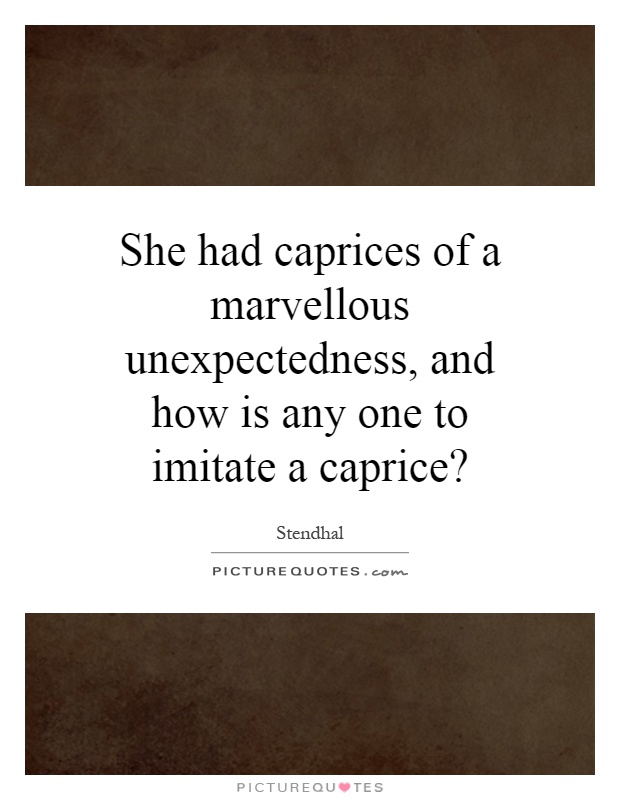She had caprices of a marvellous unexpectedness, and how is any one to imitate a caprice?

She had caprices of a marvellous unexpectedness, and how is any one to imitate a caprice?
In the world of Stendhal, caprices were not just whims or passing fancies, but rather powerful and unpredictable forces that could shape the course of a person's life. The quote "She had caprices of a marvellous unexpectedness, and how is any one to imitate a caprice?" speaks to the enigmatic nature of these caprices and the impossibility of replicating them.Stendhal's characters often find themselves at the mercy of these caprices, which can lead them down unexpected paths and into unforeseen circumstances. In his novel "The Red and the Black," the protagonist Julien Sorel is driven by his own caprices, which propel him from a humble peasant upbringing to a position of power and influence in Parisian society. His capricious nature leads him to make bold and daring decisions, often with unforeseen consequences.
The quote also raises the question of whether caprices can be imitated or manufactured. Can one intentionally create a caprice, or are they purely spontaneous and unpredictable? Stendhal seems to suggest that true caprices are beyond imitation, as they arise from a unique combination of personality, circumstance, and emotion. They are not something that can be planned or controlled, but rather something that happens in the moment, without warning or explanation.
Stendhal's exploration of caprices reflects his larger themes of passion, desire, and the irrational forces that drive human behavior. His characters are often caught up in the whirlwind of their own caprices, unable to resist their pull or predict their outcome. In this sense, caprices are both a blessing and a curse, offering the possibility of excitement and adventure, but also the risk of danger and destruction.
Ultimately, Stendhal's quote reminds us of the power and unpredictability of caprices, and the impossibility of truly understanding or controlling them. They are forces of nature, beyond our comprehension or manipulation, and we must learn to navigate their twists and turns with grace and courage.












 Friendship Quotes
Friendship Quotes Love Quotes
Love Quotes Life Quotes
Life Quotes Funny Quotes
Funny Quotes Motivational Quotes
Motivational Quotes Inspirational Quotes
Inspirational Quotes